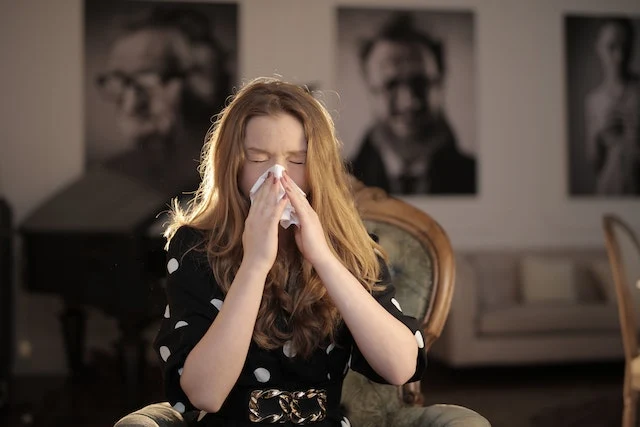How to Avoid H1N1:
Tips and Tricks to Stay Safe from the Pandemic Virus
H1N1 is a pandemic virus that affected many people across the globe. It can cause severe illness and sometimes even lead to death. Fortunately, there are steps you can take to avoid getting infected with this virus.
In this article, we will discuss some additional tips and tricks that you can follow to stay safe from H1N1.
Some symptoms of swine flu are Shortness of breath, High fever (over hundred Fahrenheit or 40 Celsius), unusual tiredness (dizziness), runny nose, sore throat, loss of appetite, muscle aching and vomiting or/and diarrhea. It is important to have a thermometer at home to check your temperature. Be wary if you are pregnant or have a natural disorder.
2. W ash your hands:
Washing your hands washes away the bacteria on your hands. Hand Sanitizer gets rid of the bacteria as well, but always leaves little traces and side effects like dried up hands. Soap is highly recommended for it's natural way of eliminating germs.
Washing your hands after going to the washroom or before eating is very good and means you live a healthy life. Wash your hands about 10 times a day. Seems to much? Or you rather get the pandemic flu.
Call the local clinic if you think you have H1N1. You will be isolated and will have a check-up on your flu. It is best to have the flu-shot before you get H1N1 because it can prevent you from getting it. It contains water, mercury and other materials in it. If you are extremely ill, you must go to the emergency room immediately in caution.
Always sneeze on your sleeve as for this spreads the germs on your clothes. Coughing can be blocked by being excused and coughing in your hand. It is very important to wash your hands after sneezing or coughing because of chances of infection of the virus.
Avoid hand contact with anybody for the next 5 minutes after the coughs and sneezes. Also try to avoid ill people, because you really don't know what they have.
One of the best ways to avoid H1N1 is to have a strong immune system. You can do this by eating a healthy and balanced diet, getting enough sleep, and exercising regularly. A strong immune system can help fight off viruses and other harmful pathogens.
6. Avoid Crowded Places:
H1N1 can spread easily in crowded places. Therefore, it is best to avoid crowded places as much as possible. If you have to go to a crowded place, make sure to wear a mask and keep a safe distance from others.
7. Keep Your Environment Clean:
H1N1 can live on surfaces for several hours. Therefore, it is important to keep your environment clean and disinfected. Make sure to clean surfaces such as doorknobs, light switches, and countertops regularly.
8. Stay Hydrated:
Drinking plenty of fluids can help keep your body hydrated and reduce the risk of getting infected with H1N1. Water, herbal tea, and soups are excellent options.
9. Take Vitamin C:
Vitamin C is known to boost the immune system and help fight off viruses. Taking vitamin C supplements or eating vitamin C-rich foods such as oranges, lemons, and grapefruits can help reduce the risk of getting infected with H1N1.
10. Know the side effects after overcoming H1N1:
Pneumonia, Bronchitis, Mental Dizziness, Sore throat and sniffles.
11. Not feeling well at public?
You have to go home immediately because H1N1 can spread like butter on bread. Once you are at home, consult a doctor on the phone about H1N1 and he will set up a room for you. It is very important to avoid public when having H1N1.
Tips:
- Wash your hands multiple times a day.
- Avoid eating with your hands.
- If you are pregnant be very careful of H1N1.
- Call before going to see the doctor.
- Wear a face mask.
- Avoid touching your face, especially your eyes, nose, and mouth.
- Carry a hand sanitizer with you at all times.
- Use disposable tissues when coughing or sneezing and dispose of them immediately.
- Avoid sharing personal items such as towels, razors, and toothbrushes.
- If you feel sick, stay at home and avoid contact with others.
Warnings:
- Avoid self-medication and always consult a doctor if you experience any symptoms.
- Never take antibiotics for H1N1 as they are not effective against viruses.
- Do not panic as stress can weaken your immune system and make you more susceptible to infections.
- Never touch and eat with unwashed hands.
- If you have H1N1 stay in bed and have some porridge or soup.
By following these tips and tricks, you can reduce the risk of getting infected with H1N1.
Remember to stay safe, stay
healthy, and stay informed.




Comments